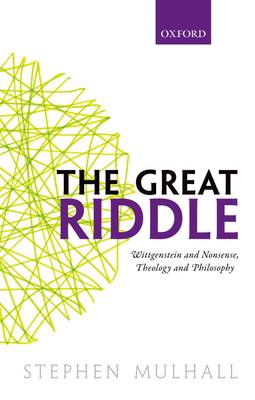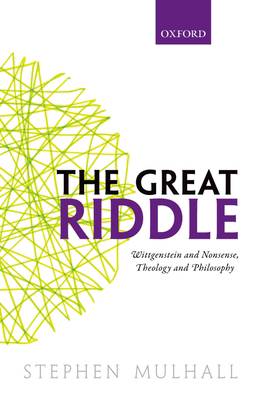
Je cadeautjes zeker op tijd in huis hebben voor de feestdagen? Kom langs in onze winkels en vind het perfecte geschenk!
- Afhalen na 1 uur in een winkel met voorraad
- Gratis thuislevering in België vanaf € 30
- Ruim aanbod met 7 miljoen producten
Je cadeautjes zeker op tijd in huis hebben voor de feestdagen? Kom langs in onze winkels en vind het perfecte geschenk!
- Afhalen na 1 uur in een winkel met voorraad
- Gratis thuislevering in België vanaf € 30
- Ruim aanbod met 7 miljoen producten
Zoeken
The Great Riddle
Wittgenstein and Nonsense, Theology and Philosophy
Stephen (New College, Oxford) Mulhall
Paperback
€ 42,95
+ 85 punten
Uitvoering
Omschrijving
Can we talk meaningfully about God? Grammatical Thomism affirms that religious language is nonsensical, because the reality of God is beyond our capacity for expression. 'Nonsense' is standardly taken to be a term of criticism in Wittgenstein's work, but Mulhall argues that we can exploit an analogy with riddles to take a more positive view.
Specificaties
Betrokkenen
- Auteur(s):
- Uitgeverij:
Inhoud
- Aantal bladzijden:
- 148
Eigenschappen
- Productcode (EAN):
- 9780198801627
- Verschijningsdatum:
- 22/03/2018
- Uitvoering:
- Paperback
- Afmetingen:
- 217 mm x 139 mm
- Gewicht:
- 200 g

Alleen bij Standaard Boekhandel
+ 85 punten op je klantenkaart van Standaard Boekhandel
Beoordelingen
We publiceren alleen reviews die voldoen aan de voorwaarden voor reviews. Bekijk onze voorwaarden voor reviews.









